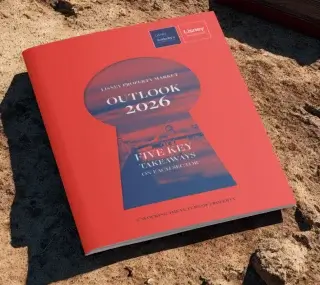read also
 Lisney Property Market Outlook: Irish Property Market Poised for Steady Growth in 2026
Lisney Property Market Outlook: Irish Property Market Poised for Steady Growth in 2026
 Inflation in Romania Slows to 9.6% but Remains Above Forecast
Inflation in Romania Slows to 9.6% but Remains Above Forecast
 Riots in Mexico Disrupt Air Links to Resort Destinations
Riots in Mexico Disrupt Air Links to Resort Destinations
 UK House Prices Stabilise After 2025 Slowdown
UK House Prices Stabilise After 2025 Slowdown
 Israel Housing Market Eyes a Reset in 2026
Israel Housing Market Eyes a Reset in 2026
 Real Estate Investment Declines in Southeast Europe in 2025
Real Estate Investment Declines in Southeast Europe in 2025
The Catalan crisis as a threat to investors: what to fear

The Catalan crisis caused a rather powerful blow to Spain's economy. Because of the failed referendum, the country's economy was one step away from a knockout. Worsening has already affected GDP, the stock market, and the euro exchange rate. Let us consider how the division affected the financial situation in details.
Falling indicators
Catalonia is about 20% of Spain GDP, which is why the crisis in the region has so much impact on the country's economy. The saddest thing is that before these events, Spain economy was predicted to be small, but growing, at around 2.7%.
Because of the Catalan crisis, Spain is predicting a GDP decline of 0.4-1.2 percentage points as early as next year. The independent body on fiscal responsibility has calculated that this is about 12 billion euros of damage to the country's GDP. If a new round of conflict ensues, the damage will increase.
The country's stock market has already reacted to changes in the country. After the October 1 referendum, the stock market index plummeted: on October 2, the Ibex 35 stock index fell 1.15 points. The prices for ten-year state bonds also dropped - now it is only 1.68% per annum. Even the shares of the largest banks of the country Caixa and Sabadell fell - by 5% immediately after the referendum and, most likely, will fall further.
In October, because of the Spanish events, the euro rate updated its minimum index. It fell 0.63% to $ 1.1745. Although experts predict a short-term nature of the euro rate fall, Western analysts advise investors not to forget about political risks.
Business escape
Now the government in Catalonia was taken over by the Vice Prime Minister of the country Soraya Saenz de Santamaria. Parliament is dissolved and early elections are scheduled. When the situation is fully resolved and the conflict exhausts itself completely, it will be possible to start talking about restoring the economy of the country and the Catalan region to the previous levels. So far the situation is still conflictual, and the criminal persecution of the representatives of the Catalan authorities is driving the situation even more.
We all understand that Catalonia will remain part of Spain, but the conflict was quite strong, and therefore, the consequences can not be avoided. Hundreds of Spanish and foreign companies have already left the region. One of the companies- escapee - the leader among biotechnology firms company Oryzon Genomics. Many German and British companies left the region. They were overcome by fear. After all, if Catalonia suddenly breaks off, the region will not be incorporated into the EU, still business does not entice the uncertain legal status. To leave was the simplest and most logical decision in this situation. Nothing personal just business.
The representative of German entrepreneurs in Barcelona, Albrecht Peters, said that the business climate in Catalonia is already spoiled, and about 800 German firms are ready to move, including network giants such as Lidl, Aldi, and Media Markt Saturn.
Economy of Spain
If we talk about how the situation affected the country's economy, then you need to consider that Catalonia is economically the most developed region of Spain. It is here the headquarters of the largest Spanish companies are located, including the already mentioned major banks (Caixa, Sabadell), oil and gas (Gas Natural SDG), telecommunication (Cellnex Telecom), transport (Abertis Infrastructures), pharmaceutical (Grifolos) and other companies.
It is in Catalonia that there are three Volkswagen factories producing Seat cars, American companies Cargill and Airbnb, Swiss Nestle and many others. It is interesting that GDP per capita here was always higher: 30 thousand against the Spanish 23 thousand. Although the share of the population of Catalonia is 16.2% of the total Spanish, the share of the region in the national GDP is 20%. Unemployment in Catalonia was also below all-Spanish.
With heartless statistics, the lion's share of Catalan enthusiasm was called for separation. If Catalonia was a separate state within the European Union, then its per capita GDP outstripped the Italian indicators, not just Spanish or Portuguese. Therefore, the Catalans also believe that their share in the state treasury is too great. According to their own estimates, they overpay about 16 billion euros annually. The situation, when the most prosperous region of the country has experienced an armed civil conflict, definitely affects the economy of the whole state.
It should also be taken into account that if Catalonia is declared independent, it will lose most of the enterprises that will leave because of an incomprehensible political situation. And further, the inflated banking sector and national debts will affect the state of affairs of which Catalonia in this development of events will fall at least 20%, plus a debt load. Summing up, the situation with the department will have a negative impact on Spain and Catalonia. So, well-being in the separatist region in this situation will not come in the next few years. After all, Catalan exports will fall seriously, therefore, unemployment will rise. Each side will lose the credit rating and the lion's share of foreign investment.
By the way, a credit rating of Catalonia has already decreased. This was reported by Fitch and Standard & Poors.
While Catalonia remained in the composition of Spain. Madrid should not rattle with weapons but negotiate in order not to exacerbate the crisis and not lead to a new escalation. Meanwhile, Catalonia requires more independence, still remains a source of instability. This state of affairs will last until moods abate and local residents do not accept the status of autonomy and will not give up their thoughts on sovereignty. Business will not return right away, but only when there is a certainty that the conflict is completely exhausted.
Investors, meanwhile, remain to minimize risks, cautious about investing in the Spanish economy. But there is one "but" - the cities of Catalonia with a high degree of a tourist attraction, such as Barcelona, are still attractive for investments in the tourist segment. The idea of buying property in the tourist-attractive places of Catalonia also does not lose its attractiveness. It does not matter if Spain is in Barcelona or not, the flow of tourists to this city will not run out, as in a number of other tourist places of the country, like Seville, Mallorca or Madrid.


